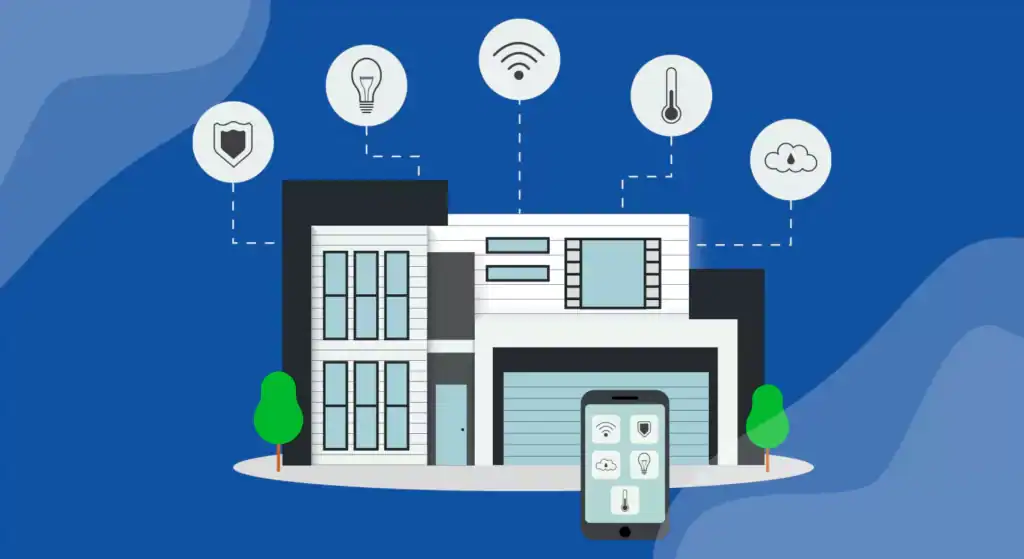The real estate industry has seen major changes in the past few years, with technology playing a vital role in shaping the market. One of the most significant technological advancements in the industry is the Multiple Listing Service (MLS), a database of real estate properties listed by real estate brokers. The MLS has revolutionized how properties are marketed and sold, providing buyers with access to a wide range of properties and sellers with exposure to a larger pool of potential buyers.
The Arab Multiple Listing Service (Arab MLS) is a relatively new player in the real estate industry but has already made a significant impact. Arab MLS is a web-based platform that allows real estate brokers to list properties and connect with potential buyers. It provides a centralized location for property listings, making it easier for clients to find the houses they are searching for and for brokers and sellers to market their properties.

Evolution of Multiple Listing Services
Multiple Listing Services (MLS) have a long history in the real estate industry and have undergone significant changes. This section will discuss the evolution of MLS, including the transition from paper to digital and the National Association of Realtors (NAR) role.
From Paper to Digital
The MLS system was first introduced in the late 1800s to allow real estate agents to share information about properties for sale. Initially, this information was shared through printed catalogs and updated periodically. However, this system could have been more convenient and efficient, and it was difficult for agents to keep track of changes to the listings.
With the advent of computer technology in the 1960s, the MLS system began to transition to a digital format. This allowed agents to access up-to-date information about properties in real-time, making it easier to track changes to the listings. Today, most MLS systems are entirely digital, and agents can access the database anywhere with an internet connection.
The Role of the National Association of Realtors
The National Association of Realtors (NAR) played a significant role in the evolution of MLS. In the early days of MLS, the information shared between agents needed to be standardized. This made it difficult for agents to compare properties and for buyers to make informed decisions.
The NAR developed a set of standards for MLS data to address this issue, known as the Real Estate Transaction Standard (RETS). This standardization made it easier for agents to share information about properties and for buyers to compare listings.
The NAR also played a role in developing the Multiple Listing Service Internet Data Exchange (IDX), allowing agents to display MLS listings on their websites. This has made it easier for buyers to search for properties online and has increased the visibility of listings.
Despite these advancements, there are still some challenges with the MLS system. For example, multiple MLS systems exist in different regions, making it difficult for agents to access information from other areas. Additionally, some agents have criticized the MLS system for being too restrictive and not allowing for enough innovation.
In conclusion, MLS technology has come a long way since its inception and continues evolving. While there are still some challenges with the system, it remains an essential tool for real estate agents and buyers alike.
Impact on Real Estate Business Models
The introduction of Multiple Listing Service (MLS) technology has significantly impacted the real estate industry, including changes to business models and commission structures.

Shift in Brokerage Strategies
MLS technology has made it easier for real estate brokers to share information about properties, leading to a shift in brokerage strategies. Instead of relying solely on their listings, brokers can now access a broader range of properties through the MLS. This has increased cooperation between brokers and a more collaborative approach to real estate transactions.
The Arab Multiple Listing Service (AMLS) is an example of how this technology has been implemented in the Middle East. AMLS is a platform that allows real estate brokers to share information and collaborate on transactions. By using AMLS, brokers can access a broader range of properties and work more efficiently with other brokers.
Influence on Commission Structures
MLS technology has also influenced commission structures. In the past, brokers may have charged a higher commission for their listings, as they were responsible for marketing and selling the property. With the introduction of MLS technology, however, brokers can now access a broader range of properties and may charge a lower commission.
Overall, the impact of MLS technology on real estate business models has been significant. Brokers can now work more collaboratively and efficiently, while commission structures have become more competitive. The Arab Multiple Listing Service exemplifies how this technology has been implemented in the Middle East, and similar platforms will likely continue to emerge.
Technological Advancements and MLS
Integrating computer systems and data sharing has revolutionized how real estate professionals conduct business. This section will examine the impact of technological advancements on MLS and how it has transformed the real estate industry.

Database and Information Sharing
The MLS database is a comprehensive collection of property listings that agents and brokers can access to find homes for their clients. The database is constantly updated to provide the latest information on available properties for sale or rent. With the integration of digital technologies, the MLS database has become more accessible, user-friendly, and efficient. Real estate professionals can now have access on the MLS database from their computers or mobile, making finding properties that meet their clients’ needs more accessible.
Integration of Digital Technologies
Integrating digital technologies has also made it easier for agents and brokers to market properties to potential buyers. Real estate professionals leverage social media platforms to advertise properties to a broader audience. Virtual tours and 3D modeling have also become popular tools for showcasing properties to potential buyers.
The Arab Multiple Listing Service (AMLS) is a prime example of how technology has transformed the real estate industry. AMLS is a digital platform that allows real estate agents and brokers to access property listings from across the Arab world. The platform is user-friendly and efficient, providing agents and brokers with the latest information on properties available for sale or rent.
Market Dynamics and Real Estate Transactions

Multiple Listing Service (MLS) technology has significantly impacted the dynamics and transactions of the real estate market. This section will discuss the effects of MLS technology on inventory and pricing and the enhancement of transparency and cooperation in real estate transactions.
Effects on Inventory and Pricing
MLS technology has revolutionized how properties are listed, marketed, and sold. This technology has made it easier for buyers to find suitable properties and for sellers to reach a larger pool of potential buyers. MLS technology has also made it easier for real estate agents to access information on properties and their pricing, resulting in more accurate pricing and increased competition.
The Arab Multiple Listing Service (AMLS) has provided real estate professionals a platform to list and market properties. This has resulted in increased inventory and more accurate pricing of properties, which has benefitted both buyers and sellers.
Enhancing Transparency and Cooperation
MLS technology has also enhanced transparency and cooperation in real estate transactions. That made it easier for real estate professionals to share information on properties, increasing collaboration and reducing competition among agents. This has also increased transparency in real estate transactions, as everyone can view the same data.
The AMLS has played a significant role in enhancing transparency and cooperation in the Arab real estate market. This platform has made it easier for real estate agents to share information on properties, increasing collaboration and reducing competition among agents.
MLS technology has significantly impacted the dynamics and transactions of the real estate market. The AMLS has been instrumental in providing real estate professionals a platform to list and market properties while enhancing transparency and cooperation in the Arab real estate market.
Benefits to Real Estate Professionals

Multiple Listing Service (MLS) technology can significantly benefit real estate professionals. The following subsections will highlight some of the benefits available to MLS agents and brokers.
Tools for Agents and Brokers
MLS provides real estate agents and brokers with a wealth of tools to help them succeed. For example, agents and brokers can use MLS to access detailed property information. This helps them better understand the properties they are working with and provide more accurate information to their clients.
In addition, MLS can also be used to generate reports and statistics on the real estate market. This can help agents and brokers identify trends and make more informed decisions about pricing and marketing strategies.
Expanding Client Services
MLS can also help real estate professionals to increase the services offered to clients. For example, agents and brokers can use MLS to create virtual tours, which helps clients get a better feel for a property before they visit it in person. This can save clients time and help them narrow their search more quickly.
MLS can also be used to provide clients with access to a wider variety of properties. For example, if an agent or broker is a member of the Arab Multiple Listing Service, they can access listings from various countries and regions. This can help clients looking to buy or sell property in different parts of the world.
Overall, MLS technology provides real estate professionals with a range of tools and resources to help them be more successful in their profession.
Frequently Asked Questions
How has MLS technology influenced the efficiency of real estate transactions?
MLS technology has revolutionized the real estate industry by providing a centralized platform for agents and brokers to access property listings and relevant information. This has dramatically enhanced the efficiency of real estate transactions by streamlining the property search process, making it faster and more accurate. With MLS technology, agents and brokers can easily access up-to-date information on properties, including their location, size, price, and other features.
What are the potential drawbacks of relying on MLS technology in real estate?
One potential drawback of relying on MLS technology in real estate is the risk of market saturation. With so many properties listed on MLS platforms, it can take time for individual properties to stand out. Additionally, MLS technology may not be accessible to all real estate agents and brokers, limiting the market scope. Another potential drawback is the risk of data breaches and privacy concerns associated with sharing sensitive information on MLS platforms.
In what ways has MLS technology enhanced the transparency of the real estate market?
MLS technology has enhanced the transparency of the real estate market by providing a centralized platform for sharing property information. This has made it easier for buyers and sellers to access information about properties, including their location, size, price, and other features. Additionally, MLS technology has made it easier for buyers and sellers to compare properties, increasing competition and market transparency.
How does MLS technology affect the role of real estate agents and brokers?
MLS technology has changed the role of real estate agents and brokers by providing them with a centralized platform for accessing property listings and relevant information. This has made it easier for agents and brokers to find properties for their clients and provide accurate information about the properties they are interested in. Additionally, MLS technology has made it easier for agents and brokers to market properties to a broader audience, increasing competition and market transparency.
Regarding Arab Multiple Listing Service, it is worth noting that the use of MLS technology in the region is still in its early stages. However, there is growing interest in MLS technology among real estate agents and brokers, as it provides a centralized platform for accessing property listings and relevant information. As the use of MLS technology continues to grow in the region, it is likely to significantly impact the efficiency, transparency, and competitiveness of the real estate market.












